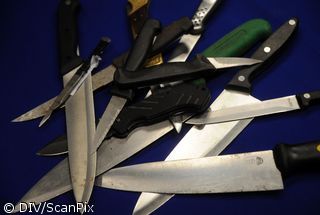The rights and wrongs of using radio frequency identification (RFID) tags on humans have been debated since the tracking tags reached the technological mainstream
Published:
14 July 2004 y., Wednesday
Japanese authorities decide tracking is best way to protect kids
The rights and wrongs of using radio frequency identification (RFID) tags on humans have been debated since the tracking tags reached the technological mainstream. Now, school authorities in the Japanese city of Osaka have decided the benefits outweigh the disadvantages and will now be chipping children in one primary school.
The tags will be read by readers installed in school gates and other key locations to track the kids' movements.
The chips will be put onto kids' schoolbags, name tags or clothing in one Wakayama prefecture school. Denmark's Legoland introduced a similar scheme last month to stop young children going astray.
RFID is more commonly found in supermarket and other retailers' supply chains, however, companies are now seeking more innovative ways to derive value from the tracking technology. Delta Air Lines recently announced it would be using RFID to track travelers' luggage.
Šaltinis:
CNET News.com
Copying, publishing, announcing any information from the News.lt portal without written permission of News.lt editorial office is prohibited.
The most popular articles

The European Commission announced today the award of three of the six contracts for the procurement of Galileo’s initial operational capability.
more »
 The last five students (just in lithuanian) who received a gift of LTL 250 from Danske Bankas in the academic year that just ended were chosen by the casting of lots recently.
more »
The last five students (just in lithuanian) who received a gift of LTL 250 from Danske Bankas in the academic year that just ended were chosen by the casting of lots recently.
more »
 New public-private partnerships launched to boost scientific research – long recognised as a stimulus for economic growth.
more »
New public-private partnerships launched to boost scientific research – long recognised as a stimulus for economic growth.
more »
 A monumental medical breakthrough has been made in this science lab in northern England.
more »
A monumental medical breakthrough has been made in this science lab in northern England.
more »
 At the Paris airshow where planemaker Airbus has announced its plans for a new project.
more »
At the Paris airshow where planemaker Airbus has announced its plans for a new project.
more »
 Divers have spent the past ten years searching for the wreckage of this Second World War Russian submarine.
more »
Divers have spent the past ten years searching for the wreckage of this Second World War Russian submarine.
more »
 It's home to the world's largest laser - and scientists hope it will change the way the world produces energy. The National Ignition Facility - near San Francisco, California - will combine the power of its 192 lasers to create temperatures and pressure that equal the sun.
more »
It's home to the world's largest laser - and scientists hope it will change the way the world produces energy. The National Ignition Facility - near San Francisco, California - will combine the power of its 192 lasers to create temperatures and pressure that equal the sun.
more »
 As concerns about record levels of knife crime increase in the United Kingdom, so too does interest in clothing that offers protection from blades. The company “BladeRunner” offers some protection from knife attack.
more »
As concerns about record levels of knife crime increase in the United Kingdom, so too does interest in clothing that offers protection from blades. The company “BladeRunner” offers some protection from knife attack.
more »
 Cuzco, Peru has now become a land of discovery.
more »
Cuzco, Peru has now become a land of discovery.
more »
 Many Chinese learners are intimidated by the complicated strokes of Chinese characters, but 22-month-old Li Tianqi is way beyond her less than two years. Li can already read and recognize over 2,000 Chinese characters.
more »
Many Chinese learners are intimidated by the complicated strokes of Chinese characters, but 22-month-old Li Tianqi is way beyond her less than two years. Li can already read and recognize over 2,000 Chinese characters.
more »
 This 47 million year old primate fossil found in near perfect condition could form a vital piece of the jig-saw puzzle into the early species which could have lead to the evolution of apes and humans.
more »
This 47 million year old primate fossil found in near perfect condition could form a vital piece of the jig-saw puzzle into the early species which could have lead to the evolution of apes and humans.
more »